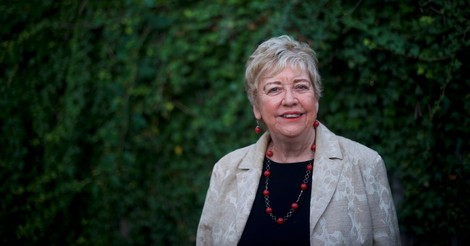Your podcast discovery platform
Curious minds select the most fascinating podcasts from around the world. Discover hand-piqd audio recommendations on your favorite topics.

piqer for: Global finds Doing Good
Michaela Haas, PhD, is the award-winning author of four non-fiction books, most recently Bouncing Forward: The Art and Science of Cultivating Resilience (Simon&Schuster). She is a member of the Solutions Journalism Network and writes a weekly solutions column for the German Süddeutsche Zeitung Magazin. Her articles have been published on CBS, the Washington Post, the Huffington Post, Daily Beast, and many other reputable media.
Taking Sexual Assault Seriously: Abolishing "The Lying Bitches Unit"
"What were you wearing? Why were you out by yourself?"
Rape investigators routinely ask questions that can be jarring for survivors. A police initiative in Philadelphia involves advocates in order to educate investigators and solve more crimes.
It is well-known by now that police failure to investigate rape is a longstanding global problem. In this piece, Tina Rosenberg, co-founder of the Solutions Journalism Network, not only sheds light on a particularly negligent police unit in Philadelphia, but also on the highly unusual steps a new chief took to remedy the issue.
For decades, the Philadelphia sex-crime unit buried about a third of all rape complaints in order to clean up the crime record of the city. When a new chief came in, he recognized that his investigators needed to be educated (one of them had nicknamed his unit the "lying bitches unit"). He took the revolutionary step of bringing in a group of advocates and allowing them access to the confidential files (with names and identifying details redacted) in order for them to give feedback on how the cases could be handled better.
The feedback goes both ways: It also gives investigators a chance to educate advocates why sometimes asking tough questions is necessary, and together they find ways to handle these sensitive interviews better.
Rosenberg's solutions story is particularly poignant when read in conjunction with the New York Times Magazine's cover story about a woman who was accused of fabricating a violent rape by a stranger: Evidence was bungled, witnesses were not interviewed, and most of all, the survivor was ridiculed and even threatened with arrest – until new evidence confirmed her story years later. Clearly, there is more work to be done.
